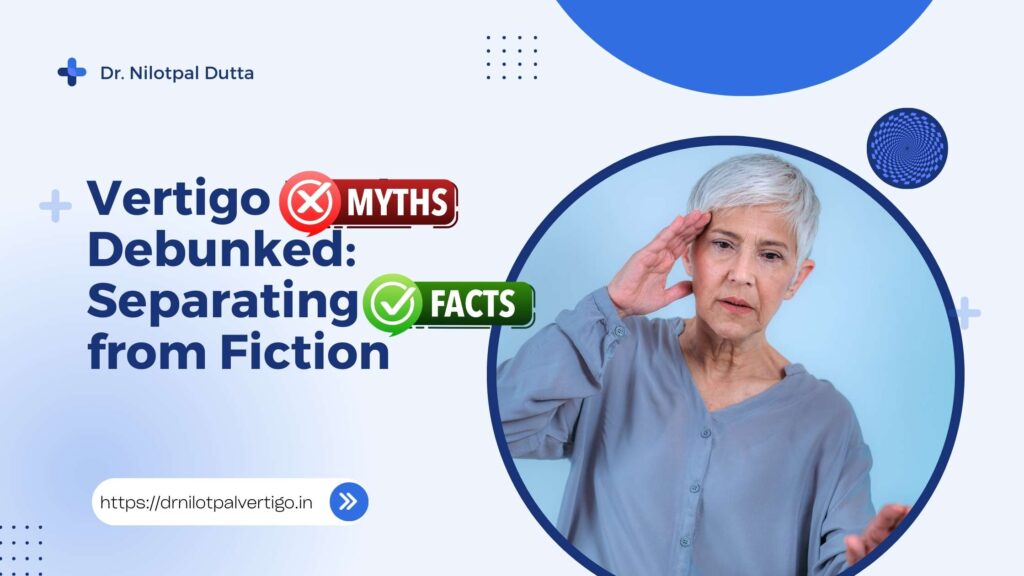Introduction
Vertigo, a common symptom characterized by a spinning sensation, is often surrounded by myths and misconceptions. These myths can lead to misunderstandings about the condition and delay proper treatment. In this blog, we aim to debunk some of the prevalent vertigo myths, shedding light on the facts and emphasizing the importance of consulting the best vertigo doctor in India for accurate diagnosis and management.
Myth 1: Vertigo is just a fancy term for dizziness.
Fact: While dizziness and vertigo may seem similar, they refer to different sensations. Dizziness is a broad term encompassing feelings of lightheadedness, unsteadiness, or faintness, whereas vertigo specifically involves a spinning or whirling sensation, often triggered by changes in head position. It’s essential to distinguish between these symptoms as they may stem from different underlying causes and require specific treatments.
Myth 2: Vertigo only affects older adults.
Fact: While vertigo is more prevalent among older adults due to age-related changes in the inner ear, it can occur at any age. Inner ear infections, vestibular nerve disorders, head injuries, or even migraines can cause vertigo in younger individuals. It’s crucial to recognize that vertigo can affect people of all ages and seek appropriate medical evaluation, regardless of age.
Myth 3: Vertigo is always a sign of a serious medical condition.
Fact: While vertigo can be a symptom of underlying health issues such as inner ear disorders, vestibular migraines, or Meniere’s disease, it’s not always indicative of a severe condition. Benign paroxysmal positional vertigo (BPPV), for example, is a common cause of vertigo triggered by specific head movements and is generally treatable with simple maneuvers. However, it’s essential to consult a doctor to rule out serious causes and receive appropriate management.
Myth 4: Vertigo will go away on its own, so there’s no need to see a doctor.
Fact: While some cases of vertigo may resolve spontaneously, others may persist or worsen without proper treatment. Ignoring vertigo symptoms can lead to complications such as falls, injuries, or decreased quality of life. Consulting the best vertigo doctor in India ensures timely diagnosis and appropriate management, whether through medications, vestibular rehabilitation, or other interventions.
Myth 5: Medications are the only treatment for vertigo.
Fact: While medications may be prescribed to alleviate vertigo symptoms or manage underlying conditions, they are not the only treatment option. Vestibular rehabilitation therapy (VRT), a specialized form of physical therapy, can effectively improve balance and reduce vertigo symptoms by promoting vestibular compensation and adaptation. Lifestyle modifications, dietary changes, and surgical interventions may also play a role in certain cases. The best approach to vertigo treatment depends on the underlying cause and individual patient needs.
Conclusion:
Vertigo myths can perpetuate misconceptions about the condition, leading to delays in seeking appropriate medical care. By debunking these myths and emphasizing the facts, we encourage individuals experiencing vertigo symptoms to consult the best vertigo doctor in India for accurate diagnosis and personalized treatment. Don’t let misinformation stand in the way of regaining balance and well-being – seek professional help to address vertigo effectively and improve your quality of life.




